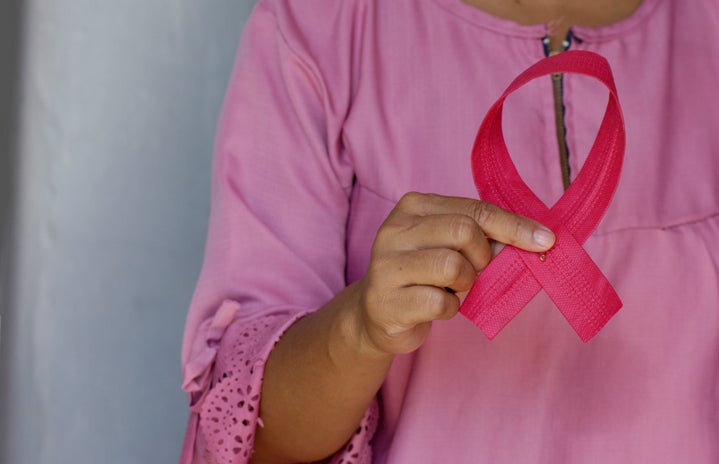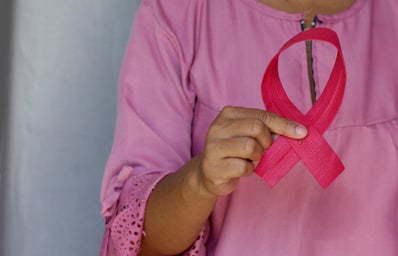In 2005, my grandmother received a life-changing diagnosis; at 58 years old, she had breast cancer. Fearful for the journey ahead, she began the difficult treatment process. My grandfather, mother and other family members rallied around her, supporting her through harrowing days of radiation, chemotherapy and surgery. Through the combination of this loving support, her strong spirit and an amazing medical team, she was declared cancer-free in 2006.
Grateful for her ultimate recovery, my grandmother attended a cancer survivors’ dinner shortly after she entered remission. The banquet hall was filled with women sporting pink ribbons, the symbol for breast cancer awareness. This helped her realize that she was certainly not alone in this experience; hundreds of brave women gathered together to share their stories as breast cancer survivors.
My grandmother’s experience is one of countless stories of breast cancer in the US. According to the National Breast Cancer Foundation (NBCF), over 360,000 people will be diagnosed with breast cancer in 2024 alone in the US. In fact, breast cancer is one of the most common types of cancer for US women—it accounts for approximately 31% of female cancer cases each year. It is a universal struggle; these staggering statistics show that almost everyone personally knows somebody who has had breast cancer.
Luckily, due to a combination of scientific advancement and early intervention, 99% of people who are diagnosed with localized breast cancer survive according to the 5-year survival rate. Being diagnosed with it is no longer a death sentence.
Early intervention is key to this high success rate. After breast cancer becomes metastatic (spreads throughout the body), the 5-year survival rate drastically drops to only 31%. Mammograms and other preventive measures are essential in ensuring that every person who is diagnosed with breast cancer has the best chances of survival.
NBCF offers free screenings for low-income, uninsured individuals who are at risk for breast cancer. This allows those who wouldn’t otherwise be tested for breast cancer to receive testing and begin treatment before it is too late. Services such as these aim to further raise the breast cancer survival rate.
Research is also critical in furthering knowledge about breast cancer and putting that knowledge into effective action. For example, the Breast Cancer Research Foundation (BCRF) has supported key scientists in the discovery of the BRCA1 and BRCA2 genes. This revealed that individuals who have certain genetic markers are at a much higher risk of developing breast cancer. People who test positive can then be monitored closely and quickly receive treatment if diagnosed, almost ensuring their survival.
Such research is heavily funded by donations from organizations and individuals. BCRF’s website reveals that throughout the years, they have raised over a billion dollars to support breast cancer research. This emphasizes that without charitable contributions, advancements in the field wouldn’t be as successful as they are today.
Breast cancer awareness is relevant all year long, but it is especially highlighted in October, as it is Breast Cancer Awareness Month. Through fundraising efforts, support groups and awareness campaigns, the realities of living with breast cancer are brought to light.
Ordinary people can make a difference during this important month. Just miles from St. John’s University at Flushing Meadows Park, there will be an event called Making Strides Against Breast Cancer. On Oct. 20, hundreds of supporters and several corporate sponsors will gather on a walk to raise funds for breast cancer research and resources.
My grandmother continues to be cancer-free today, which wouldn’t have been possible without the widespread research and camaraderie around conquering this awful disease. The continual efforts of the medical community, along with the support from the public, can hopefully lead to a cure in the near future.


